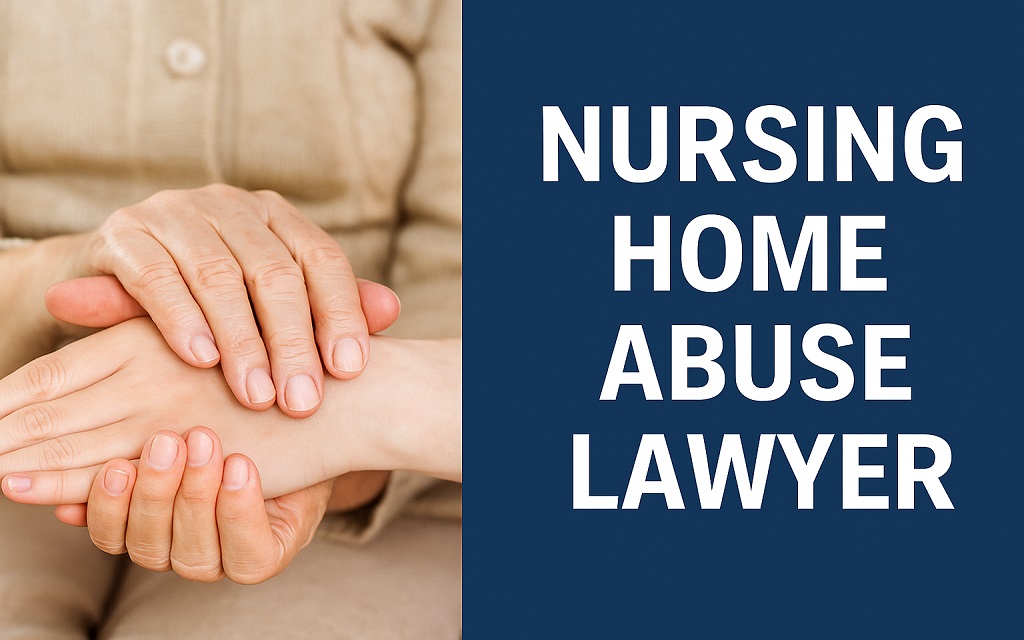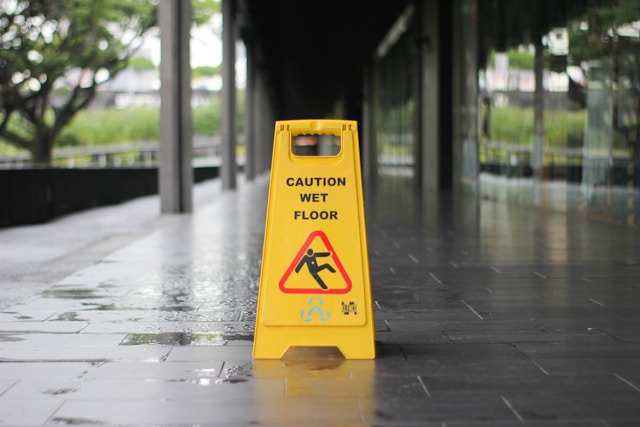Before filing a lawsuit, you should be aware of the responsibilities of a nursing home abuse lawyer. These solicitors assist families and victims in pursuing legal lawsuits against care facilities and those accountable for neglect or abuse. They compile facility records, witness accounts, and medical reports. They bring legal action to recover damages for wrongful death, mental distress, and medical expenses.
It is essential to understand that under federal statutes such as the Nursing Home Reform Act, attorneys who specialise in nursing home abuse also hold institutions responsible. They push for change in care standards. If your loved one experienced poor care, emotional trauma, or physical harm, you should talk to one.
Why Is Abuse in Nursing Homes So Common?
It is critical to understand that abuse in nursing homes occurs in many establishments. According to a World Health Organisation survey, 16 out of 100 old individuals living in institutions experience maltreatment. One of the leading causes of this is frequently a lack of employees. Low supervision and inadequate training also play a part.
More than 1.4 million individuals reside in nursing homes in the US. Many face daily risks due to underpaid or undertrained caregivers. The National Council on Aging reports that only 1 in 24 elder abuse cases gets reported. You should always act early if something feels wrong.
What Are the Most Common Types of Nursing Home Abuse?
You should recognize the signs of different types of abuse. Each type has profound effects.
- Physical abuse: includes pushing, hitting, and rough treatment.
- Emotional abuse: Yelling, threats, and humiliation are examples of emotional abuse.
- Sexual abuse: Unwanted touching and assault constitute sexual abuse.
- Financial abuse: forgeries, theft, and false accusations
- Neglect: Inadequate hygiene, hunger, untreated injuries
Employees, other residents, or outside guests may be involved in each category. Anything out of the ordinary should be noted as soon as feasible.
How Can You Spot the Signs of Elder Abuse?
You should stay alert to early symptoms. Abuse often leaves visible and behavioral clues.
- Sudden bruises or broken bones
- Mood changes like fear or withdrawal
- Poor hygiene or weight loss
- Bedsores or untreated wounds
- Unpaid bills or missing valuables
The Centers for Medicare & Medicaid Services (CMS) tracks care quality at facilities. You should check facility ratings before making a placement decision.
What Laws Protect Elderly Residents?
It is essential to understand that federal and state laws protect nursing home residents. The Nursing Home Reform Act of 1987 sets standards for care. It requires dignity, freedom from abuse, and access to proper health services.
The Elder Justice Act enforces reporting requirements and improves oversight. Most states also have Adult Protective Services and elder protection statutes. You can file complaints with a Long-Term Care Ombudsman if you see problems.
When Should You Talk to a Nursing Home Abuse Lawyer?
You should act quickly once you see red flags. Legal help becomes urgent when:
- Staff refuse to explain injuries
- Management avoids your questions
- A loved one expresses fear or confusion
- Doctors report unexplained harm
- You file complaints with no response
Delays reduce your chances of collecting evidence. You should not wait if something feels unsafe.
How Can a Lawyer Prove Abuse Happened?
A nursing home abuse lawyer uses many tools to prove claims. Evidence strengthens your case. You can help gather essential items.
- Medical records
- Injury photos
- Witness statements
- Facility inspection reports
- Video footage, if available
- Expert reviews of treatment or care
Lawyers also check state databases for violations. Many facilities already have warning histories. You should ask about that during the intake process.
What Compensation Can Victims Receive?
You can pursue several types of damages in an abuse lawsuit. Compensation depends on the severity of the injury and the level of negligence at the facility.
- Costs of medical treatment
- Pain and emotional suffering
- Therapy or mental health support
- Lost personal property
- Punitive damages for extreme harm
In a 2023 example, a Georgia jury awarded $2.8 million to the family of a man who died from untreated sepsis in a nursing home. You should know that high-value cases often involve fatal or long-term injuries.
What Steps Does a Lawsuit Usually Follow?
You should expect a straightforward process once you file. A nursing home abuse case follows key stages.
- Free case consultation
- Formal complaint filing
- Collection of medical and legal evidence
- Discovery process with depositions
- Negotiation for settlement
- Trial if no agreement occurs
Many cases settle before trial. A skilled lawyer works to build pressure through evidence. You should ask about previous results during the first meeting.
How Much Does It Cost to Hire a Lawyer?
You should not worry about upfront costs. Most elder abuse attorneys use contingency fees. You pay only if your lawyer wins the case.
This model helps more families access justice. Lawyers cover investigation and expert costs. You should confirm the percentage they charge before signing anything.
Are There Time Limits to File a Claim?
You should be aware of your deadline for filing. States set a statute of limitations. Most allow between 1 and 3 years from the date of injury or discovery.
Some states extend this if fraud or concealment occurs. Cases involving dementia or cognitive decline may also allow more time. You should consult a lawyer immediately to protect your rights.
What If the Abuse Happens in Assisted Living?
It is essential to know that assisted living residents have similar rights. Many lawyers handle both nursing home and assisted living abuse cases. Abuse still counts when caregivers ignore needs, isolate residents, or steal money.
Facilities often claim they are not liable. You should not believe them until a lawyer reviews your situation.
Can You Sue the Facility or the Individual?
You can take legal action against both the caregiver and the facility. Owners may be liable for hiring unqualified staff. They may also face penalties for failing to provide adequate supervision or for not reporting abuse.
The facility’s insurance usually covers settlements. You should never accept small offers without consulting a lawyer.
What Happens If the Victim Cannot Speak?
You can still take action. Many family members file lawsuits on behalf of loved ones. Courts allow this when the victim has dementia or severe disability.
You may need to provide proof of legal guardianship or a power of attorney. You should gather those documents early.
Can Group Lawsuits Hold Facilities Accountable?
Yes. Some cases affect multiple residents. That includes issues like:
- Understaffing
- Contaminated food or water
- Shared medication errors
- Corporate policies that cut safety costs
In 2022, over 80 residents in a Massachusetts facility joined a mass tort case over medication mix-ups. You should ask your lawyer if there are other victims.
What Should You Do If You Suspect Abuse?
You should take immediate steps to protect your loved one.
- Call 911 if you believe danger exists
- Take clear photos of any injuries
- Visit unannounced and talk to the staff
- Record details like times and names
- File a report with Adult Protective Services
- Consult a lawyer before speaking to the facility
Fast action may prevent more harm. Many families regret waiting.
What Tools Help You Choose a Good Lawyer?
You should look for proven experience. The right nursing home abuse lawyer should have:
- Elder law focus
- Strong settlement record
- Positive client reviews
- Trial experience in abuse cases
- Free consultation and no upfront fees
How Do These Cases Help Others?
You should be aware that lawsuits can lead to significant changes. Many successful cases lead to better care guidelines.
- Facilities improve staff ratios.
- Government agencies increase oversight.
- The public learns warning signs.
- Bad actors face job bans or jail.
Your case may stop future harm. You should speak up if you know something is wrong.
Frequently Asked Questions
Can I afford a nursing home abuse lawyer?
Yes. Most use contingency fees. You pay nothing unless they win.
Can I sue on behalf of my parent?
Yes. You need a power of attorney or legal guardianship.
What if the facility denies everything?
Lawyers gather proof. Denials do not stop lawsuits.
What if the abuse happened years ago?
You should check the deadline in your state. Some laws allow delayed filings.
Conclusion: Hiring a Nursing Home Abuse Lawyer
You should never stay silent if a loved one faces harm in a care facility. Legal help brings accountability and protection—time matters. Laws have strict limits. You should speak to an elder abuse lawyer before the evidence disappears.
However, you should never ignore abuse signs. You should never let a facility silence your concerns. Legal action brings justice, protection, and closure. You have the right to speak up. Because you have the right to demand better care, you should contact a nursing home abuse lawyer before it’s too late.
Disclaimer: This article provides a general overview of the Nursing Home Abuse lawyer, based on publicly available information, and is intended for informational purposes only. It does not constitute legal advice.
Musarat Bano is a content writer for JudicialOcean.com who covers lawsuits, legal news, and general legal topics. Her work focuses on research-based, informational content developed from publicly available sources and is intended to support public awareness. She does not provide legal advice or professional legal services.




